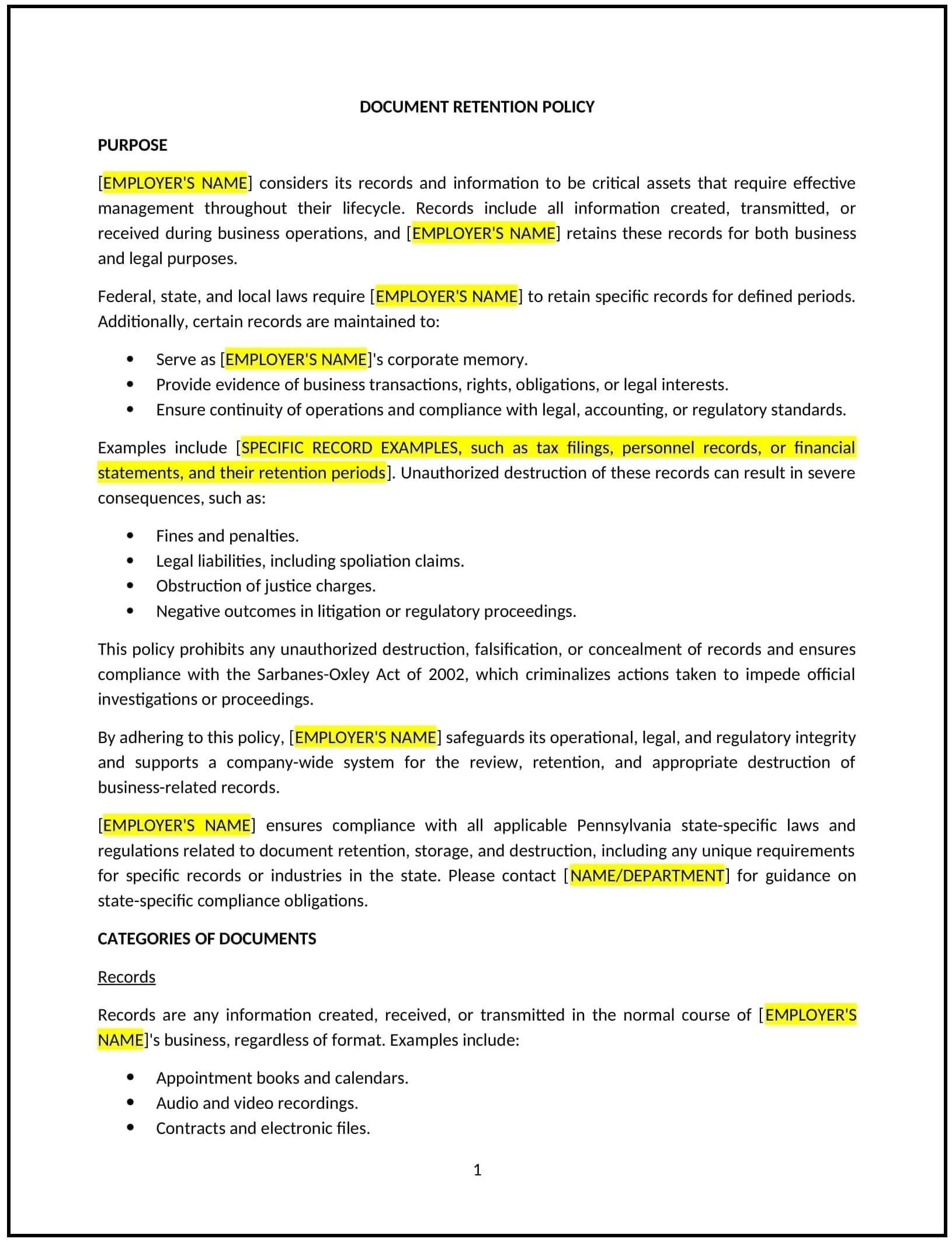Document retention policy (Pennsylvania): Free template
Got contracts to review? While you're here for policies, let Cobrief make contract review effortless—start your free review now.

Customize this template for free
Document retention policy (Pennsylvania)
This document retention policy is designed to help businesses in Pennsylvania manage the retention and disposal of records in compliance with state and federal regulations. Whether handling tax records, employment files, or client contracts, this template provides clear guidelines for preserving essential documents and securely disposing of those no longer needed.
By using this template, businesses can ensure regulatory compliance, reduce storage costs, and mitigate risks associated with improper document handling.
How to use this document retention policy (Pennsylvania)
- Define record categories: Clearly outline the types of documents covered under the policy, such as financial records, employee files, and client data.
- Establish retention periods: Specify how long each type of record should be retained based on Pennsylvania and federal legal requirements.
- Include secure disposal procedures: Provide instructions for securely disposing of documents that have exceeded their retention period, such as shredding or digital data wiping.
- Address access controls: Limit access to sensitive records to authorized personnel to protect confidentiality and ensure proper handling.
- Reflect Pennsylvania-specific considerations: Tailor the policy to address state-specific requirements, such as tax record retention periods or industry-specific regulations.
Benefits of using a document retention policy (Pennsylvania)
A well-structured document retention policy supports compliance and operational efficiency. Here's how it helps:
- Ensures compliance: Aligns with Pennsylvania and federal laws for record retention and disposal, reducing legal risks.
- Reduces storage costs: Eliminates unnecessary document storage by establishing clear disposal guidelines.
- Protects sensitive information: Implements secure handling and disposal procedures to safeguard confidential records.
- Streamlines operations: Provides clear guidelines for managing records, improving organizational efficiency.
- Addresses local requirements: Reflects Pennsylvania-specific regulations, such as tax and employment record retention standards.
Tips for using a document retention policy (Pennsylvania)
- Communicate expectations: Share the policy with employees handling records to ensure consistent implementation.
- Use a tracking system: Implement a system to monitor retention schedules and alert teams when records are due for disposal.
- Train employees: Provide training on secure storage, retention, and disposal procedures to ensure compliance.
- Conduct audits: Regularly review records and retention practices to identify gaps and ensure alignment with the policy.
- Review periodically: Update the policy to reflect changes in Pennsylvania laws, federal regulations, or business practices.